
Post-Neuro Surgery Diet and Lifestyle Tips
14 Oct, 2025
 Healthtrip
Healthtrip- Understanding Post-Surgery Nutritional Needs
- Foods to Emphasize After Neuro Surgery
- Foods to Avoid or Limit After Neuro Surgery
- The Importance of Hydration and Electrolyte Balance < li>Lifestyle Adjustments for Recovery and Well-Being
- Managing Common Post-Operative Challenges with Diet and Lifestyle
- Consulting with Healthcare Professionals and Hospitals
- Conclusion: Embracing Holistic Recovery After Neuro Surgery
The Power of Post-Surgery Nutrition
After neurosurgery, your body enters a phase of intense healing, demanding a surge in specific nutrients to repair tissues, combat inflammation, and boost your immune system. Think of your diet as a powerful medicine, working from the inside out to accelerate your recovery. Prioritize protein-rich foods like lean meats, poultry, fish, beans, and lentils, as they are the building blocks for tissue repair. Incorporate plenty of fruits and vegetables, bursting with vitamins, minerals, and antioxidants that fight inflammation and protect your cells. Don't underestimate the importance of healthy fats found in avocados, nuts, seeds, and olive oil, essential for brain function and overall well-being. Staying properly hydrated is also key, so aim to drink plenty of water throughout the day. Remember, consulting with a registered dietitian can help you create a personalized meal plan that addresses your unique nutritional needs and any dietary restrictions you may have. Facilities like Vejthani Hospital in Bangkok offer comprehensive dietary counseling services as part of their post-operative care, ensuring you receive the tailored support you need to thrive during your recovery. These steps are very important for a fast recovery, so take them seriously and recover quickly.
Most popular procedures in India
Foods to Embrace and Foods to Avoid
Navigating the grocery store after neurosurgery can feel like deciphering a complex code, but fear not – we're here to simplify things. Embrace whole, unprocessed foods that are naturally packed with nutrients. Opt for lean proteins, colorful fruits and vegetables, whole grains, and healthy fats. These foods provide your body with the essential building blocks and fuel it needs to heal. On the flip side, limit or avoid processed foods, sugary drinks, excessive amounts of saturated and unhealthy fats, and alcohol. These can hinder your recovery by promoting inflammation, weakening your immune system, and interfering with medication. Sodium can also be concerning as it can lead to additional complications, so it's important to be mindful of that as well. Remember, making small, gradual changes to your diet can make a big difference in the long run. If you're unsure where to start, consider seeking guidance from a nutritionist at hospitals like Saudi German Hospital Cairo, Egypt, who can help you create a personalized eating plan that aligns with your recovery goals. Remember, it is all about improving your health conditions and it is not as difficult as it seems. It is all about taking things one step at a time to ensure your well-being.
Gentle Exercise for Recovery
While it might seem counterintuitive after neurosurgery, incorporating gentle exercise into your routine is crucial for regaining strength, improving circulation, and boosting your mood. Start slowly and gradually increase the intensity and duration of your workouts as you feel comfortable. Simple activities like walking, stretching, and light yoga can work wonders. Walking around the house, or a short walk in the neighborhood can be enough to get you started on the road to recovery. Listen to your body and don't push yourself too hard, be patient and allow yourself the ability to rest. Avoid strenuous activities that could put stress on your surgical site. Consulting with a physical therapist is highly recommended to develop a personalized exercise plan that is safe and effective for your specific needs. Hospitals like Fortis Hospital, Noida, offer comprehensive rehabilitation programs that include physical therapy, occupational therapy, and other supportive services, ensuring you receive the expert guidance you need to regain your mobility and independence. They can help monitor your progress and ensure that you do not face any hiccups along the recovery journey. This is all about making sure you continue to get the best recovery.
Wellness Treatments
Give yourself the time to relax
Lowest Prices Guaranteed!

Lowest Prices Guaranteed!
The Importance of Mental and Emotional Well-being
Neurosurgery can take a toll on your mental and emotional well-being, leaving you feeling anxious, stressed, or even depressed. It's important to acknowledge these feelings and seek support when needed. Practice relaxation techniques like deep breathing, meditation, or mindfulness to calm your mind and reduce stress. Engage in activities you enjoy, such as reading, listening to music, or spending time with loved ones. Connecting with a therapist or counselor can provide you with a safe space to process your emotions and develop coping strategies. Don't hesitate to reach out to support groups or online communities where you can connect with others who have gone through similar experiences. Remember, taking care of your mental and emotional health is just as important as taking care of your physical health. Facilities like NPISTANBUL Brain Hospital offer comprehensive mental health services as part of their post-operative care, providing you with the support and resources you need to navigate the emotional challenges of recovery. Do not be afraid to reach out to them to get assistance. You are not alone in this journey and will recover greatly in no time.
Sleep: Your Secret Weapon for Healing
Quality sleep is often overlooked but plays a vital role in post-neurosurgery recovery. During sleep, your body repairs tissues, strengthens your immune system, and consolidates memories. Aim for 7-9 hours of quality sleep each night. Create a relaxing bedtime routine to prepare your body for sleep. This might include taking a warm bath, reading a book, or listening to calming music. Make sure your bedroom is dark, quiet, and cool. Avoid caffeine and alcohol before bed, as they can interfere with sleep. If you're struggling with sleep, talk to your doctor about potential solutions. Hospitals like Quironsalud Hospital Murcia often provide sleep management strategies as part of their recovery programs, helping you establish healthy sleep habits that promote healing and well-being. Do not undermine the importance of sleep and make sure you get enough hours of shut-eye. Your body will thank you for it, and you will be on the path to recovery sooner than you think.
Regular Check-ups and Follow-up Care
Regular check-ups and follow-up care are essential to monitor your progress and address any potential complications after neurosurgery. Your doctor will assess your neurological function, wound healing, and overall well-being. Be sure to attend all scheduled appointments and communicate any concerns or changes in your condition. Don't hesitate to ask questions and seek clarification if anything is unclear. Your healthcare team is there to support you every step of the way. Healthtrip can connect you with leading neurosurgeons and hospitals like LIV Hospital, Istanbul, that offer comprehensive post-operative care, ensuring you receive the ongoing support and monitoring you need to achieve a successful recovery. It is important to follow all advise given by a professional to aid in your journey to recovery. Make sure that you adhere to all the tips and protocols given by the doctors so that you can bounce back to great health as quickly as possible and go back to your daily activities. Remember to take things slowly, one step at a time, and you will be better soon.
Understanding Post-Surgery Nutritional Needs
Undergoing neurosurgery is a significant event, and it's natural to feel a mix of emotions – relief, anticipation, and perhaps a bit of anxiety about the recovery process. What many people don't realize is that nutrition plays an absolutely critical role in how smoothly and quickly you bounce back. Think of your body as a construction site after a major renovation. The surgery is the renovation itself, and now your body needs the right building materials – nutrients – to repair tissues, reduce inflammation, fight off infection, and regain its strength. It's not just about eating; it's about fueling your body with the specific nutrients it desperately needs. Ignoring this aspect is like trying to rebuild a house with flimsy materials – it might stand for a while, but it won't be as strong or resilient as it could be. Plus, your body's energy demands are significantly higher after surgery. Recovery takes a lot of work, and that work requires fuel. Without adequate nutrition, your body will struggle to heal, leading to prolonged recovery times, increased risk of complications, and a general feeling of being unwell. So, consider this: prioritizing your post-surgery nutrition isn’t just a good idea, it’s an investment in your health and well-being, ensuring you get back to feeling like yourself as soon as possible. Many hospitals like Fortis Shalimar Bagh and Memorial Sisli Hospital emphasize nutritional support as part of their post-operative care.
The immediate post-operative period is particularly crucial. Anesthesia, pain medications, and the stress of surgery can all wreak havoc on your digestive system, making it challenging to absorb nutrients effectively. This is where easily digestible foods and liquids become essential. Think of it as giving your stomach a gentle nudge in the right direction. Moreover, specific nutrients become even more important at this stage. Protein, for instance, is the cornerstone of tissue repair, helping to rebuild damaged muscles and skin. Vitamins C and E act as powerful antioxidants, combating the oxidative stress that often accompanies surgery. Zinc plays a vital role in wound healing and immune function. And let's not forget about hydration! Staying well-hydrated helps flush out toxins, prevents constipation (a common post-operative complaint), and keeps your body functioning optimally. But figuring out exactly what to eat and drink can feel overwhelming, especially when you're already dealing with so much. That's where consulting with a registered dietitian or nutritionist can be incredibly helpful. They can assess your individual needs, taking into account your medical history, the type of surgery you had, and any existing dietary restrictions. They can then create a personalized meal plan that will provide you with all the nutrients you need to heal and recover effectively. Hospitals such as Saudi German Hospital Cairo, Egypt; provide nutritional guidelines for patients to follow post-surgery, improving the overall healing process.
Understanding the role of macronutrients (proteins, carbohydrates, and fats) and micronutrients (vitamins and minerals) is also key. Protein is not just for bodybuilders; it's essential for everyone, especially after surgery. Carbohydrates provide your body with energy, while healthy fats help with hormone production and nutrient absorption. Vitamins and minerals act as catalysts, supporting a wide range of bodily functions, from immune function to bone health. A deficiency in any of these nutrients can impede your recovery. For instance, a lack of vitamin D can weaken your bones, while a zinc deficiency can slow down wound healing. So, it's not enough to simply eat a balanced diet; you need to make sure you're getting enough of the right nutrients to support your body's healing process. It is a journey, not a sprint. There will be good days and bad days, and it's important to be patient with yourself and celebrate small victories along the way. Remember, every healthy meal, every glass of water, every short walk you take is a step in the right direction. And with the right nutritional support and a positive attitude, you can overcome this challenge and emerge stronger and healthier than ever before. Many hospitals like Vejthani Hospital, Bangkok, provide detailed dietary plans to support recovery.
Foods to Emphasize After Neuro Surgery
Alright, let's talk about the delicious part – what you *should* be eating after neurosurgery! Think of this as your culinary prescription for recovery. The goal here is to focus on nutrient-dense foods that are easy to digest and promote healing. First and foremost, protein should be your best friend. Lean protein sources like chicken, fish, turkey, eggs, beans, and lentils are packed with amino acids, the building blocks of tissue repair. Aim for a serving of protein with every meal to help rebuild muscle and heal wounds. Don't be afraid to get creative with your protein sources. A simple grilled chicken salad, a hearty lentil soup, or even a protein smoothie can all be great options. If chewing and swallowing are difficult, consider softer options like scrambled eggs, yogurt, or protein shakes. Remember, the key is to make it easy and enjoyable to get enough protein into your diet. Hospitals like NMC Specialty Hospital, Al Nahda, Dubai recommend high protein diets for faster recovery.
Next up, let's talk about the power of fruits and vegetables. These nutritional powerhouses are loaded with vitamins, minerals, and antioxidants, all of which play a crucial role in supporting your immune system and reducing inflammation. Opt for a rainbow of colors to ensure you're getting a wide variety of nutrients. Berries are particularly beneficial, as they're rich in antioxidants that can help protect your brain from damage. Leafy green vegetables like spinach and kale are packed with vitamins and minerals, while colorful fruits like oranges and bell peppers are excellent sources of vitamin C. Don't be afraid to experiment with different fruits and vegetables to find what you enjoy. A simple fruit smoothie, a colorful salad, or a side of steamed vegetables can all be easy and delicious ways to incorporate more fruits and vegetables into your diet. It is important to wash your fruits and vegetables thoroughly to remove any potential contaminants. If you're having trouble chewing or swallowing, consider pureeing your fruits and vegetables into soups or smoothies. Facilities such as Fortis Memorial Research Institute, Gurgaon emphasize the role of a balanced diet rich in fruits and vegetables.
And let's not forget about healthy fats. While fats often get a bad rap, they're actually essential for hormone production, nutrient absorption, and brain function. Opt for healthy fats like those found in avocados, nuts, seeds, olive oil, and fatty fish like salmon. These fats can help reduce inflammation, support brain health, and provide you with sustained energy. Add avocado slices to your salads, sprinkle nuts and seeds on your yogurt, or drizzle olive oil over your roasted vegetables. Fatty fish like salmon can be grilled, baked, or pan-fried, and they're a great source of omega-3 fatty acids, which are particularly beneficial for brain health. Remember, moderation is key when it comes to fats. While healthy fats are good for you, they're also calorie-dense, so it's important to consume them in moderation. Finally, don't underestimate the importance of fiber. Fiber helps regulate your digestive system, prevents constipation, and promotes a feeling of fullness. Good sources of fiber include whole grains, fruits, vegetables, beans, and lentils. Choose whole-grain breads and cereals over refined grains, add beans and lentils to your soups and salads, and eat plenty of fruits and vegetables. Fiber can also help regulate your blood sugar levels and lower your cholesterol. Facilities such as LIV Hospital, Istanbul offer personalized dietary advice that incorporates these food groups.
Foods to Avoid or Limit After Neuro Surgery
Now that we've covered what to eat, let's talk about what to avoid or limit after neurosurgery. This is just as important as focusing on the right foods, as certain foods can actually hinder your recovery and increase your risk of complications. First and foremost, processed foods should be at the top of your list of things to avoid. These foods are typically high in sugar, unhealthy fats, and sodium, and they offer very little nutritional value. Think of them as empty calories that can actually sabotage your healing process. Processed foods can also contribute to inflammation, which can slow down your recovery. Instead of reaching for processed snacks and meals, opt for whole, unprocessed foods that are packed with nutrients. Cook at home whenever possible, so you can control the ingredients and ensure you're eating healthy, wholesome meals. Remember, what you put into your body directly affects how well you heal, so it's important to make smart food choices. Hospitals such as Bangkok Hospital recommend avoiding processed foods to promote faster healing.
Next, it's important to limit your intake of sugary drinks and foods. High sugar consumption can lead to inflammation, which can impede your recovery. Sugar can also suppress your immune system, making you more vulnerable to infection. Avoid sugary sodas, juices, and energy drinks, as well as processed desserts and candies. If you're craving something sweet, opt for natural sweeteners like fruit or a small amount of honey. But even natural sweeteners should be consumed in moderation. Remember, the goal is to keep your blood sugar levels stable and support your immune system, so it's best to limit your intake of sugary foods and drinks as much as possible. Consuming whole fruits is a better option than fruit juices, as they contain fiber that helps regulate blood sugar levels. Avoiding foods high in sugar and sodium is a common recommendation by healthcare providers at hospitals like Singapore General Hospital.
Finally, it's important to be mindful of your caffeine and alcohol consumption. Caffeine can interfere with sleep, which is essential for recovery. It can also increase anxiety and irritability. Limit your intake of coffee, tea, and energy drinks, especially in the evening. Alcohol can also interfere with sleep and can interact with pain medications. It can also dehydrate you, which can slow down your recovery. It's best to avoid alcohol altogether during the initial recovery period. If you do choose to drink alcohol, do so in moderation and under the guidance of your doctor. Also, pay attention to how your body reacts to certain foods. Some people may experience digestive issues like bloating, gas, or diarrhea after surgery. If you notice that certain foods are causing you problems, try eliminating them from your diet and see if your symptoms improve. Keep a food journal to track what you're eating and how you're feeling, so you can identify any potential trigger foods. Remember, everyone's body is different, so it's important to listen to your own body and make adjustments to your diet as needed. Hospitals like Cleveland Clinic London emphasize patient education regarding diet and lifestyle post-surgery. Staying hydrated and avoiding alcohol are integral to a smoother recovery process.
Also Read:
The Importance of Hydration and Electrolyte Balance
Maintaining proper hydration and electrolyte balance is absolutely crucial after neurosurgery. Think of it as tending to a delicate garden – the brain needs the right amount of water and minerals to flourish and recover. Surgery, no matter how skillfully performed, puts the body under significant stress, leading to fluid loss and electrolyte imbalances. These imbalances, involving essential minerals like sodium, potassium, magnesium, and calcium, can disrupt nerve function, muscle contractions, and even cognitive processes. Dehydration can thicken the blood, increasing the risk of blood clots, which is a serious concern after any surgery, particularly neurosurgery. Furthermore, adequate hydration aids in the efficient elimination of waste products and toxins from the body, supporting the healing process. Electrolytes, on the other hand, are vital for maintaining the electrical activity of the brain, ensuring proper communication between nerve cells. Insufficient electrolytes can lead to confusion, muscle weakness, seizures, and other neurological complications. This is why paying close attention to both fluid intake and electrolyte replenishment is a cornerstone of post-operative care.
Getting enough fluids doesn't just mean guzzling down water; it's about choosing the right fluids and consuming them consistently throughout the day. Water is, of course, essential, but so are electrolyte-rich beverages like coconut water, sports drinks (in moderation, due to their sugar content), and oral rehydration solutions. You can also boost your electrolyte intake through your diet by including foods like bananas (potassium), spinach (magnesium), and dairy products (calcium). However, it's important to be mindful of your individual needs and any underlying conditions. For instance, individuals with heart or kidney problems may need to moderate their fluid and electrolyte intake. Consult with your healthcare team at hospitals like Fortis Hospital, Noida (https://www.healthtrip.com/hospital/fortis-hospital-noida) or Saudi German Hospital Cairo, Egypt (https://www.healthtrip.com/hospital/saudi-german-hospital-cairo) to determine the optimal fluid and electrolyte regimen for your specific situation. They can assess your individual needs and provide personalized recommendations to ensure a smooth and safe recovery.
Lifestyle Adjustments for Recovery and Well-Being
Neurosurgery isn't just about the procedure itself; it's truly about the recovery journey that follows. This journey often necessitates significant lifestyle adjustments to optimize healing and long-term well-being. Think of it as recalibrating your life to support your brain's recovery. Adequate rest and sleep are paramount. The brain does most of its healing and repair work during sleep, so aim for consistent sleep patterns and create a restful sleep environment, free from distractions. A dark, quiet, and cool room can make a world of difference. Gentle exercise, as approved by your surgeon or physical therapist, can also play a vital role. It improves blood circulation, which delivers essential nutrients and oxygen to the brain, and helps to reduce stiffness and muscle weakness. Start slowly with activities like walking or stretching, gradually increasing the intensity and duration as you feel stronger. Avoid strenuous activities or heavy lifting until your doctor gives you the go-ahead.
Beyond physical activity, managing stress is equally important. Chronic stress can hinder the healing process and negatively impact your overall well-being. Explore stress-reduction techniques such as meditation, deep breathing exercises, yoga, or spending time in nature. Engaging in hobbies or activities that you enjoy can also help to reduce stress and boost your mood. Furthermore, consider making adjustments to your daily routine to minimize potential hazards. For example, if you have balance issues, use assistive devices like canes or walkers, and remove tripping hazards from your home, like loose rugs or clutter. Modifying your work environment, if you're returning to work, may also be necessary. This could involve adjusting your workstation, taking frequent breaks, or reducing your workload. Remember, recovery is a marathon, not a sprint. Be patient with yourself, celebrate small victories, and don't hesitate to seek support from family, friends, or a therapist. Hospitals like Vejthani Hospital (https://www.healthtrip.com/hospital/vejthani-hospital) often have resources and support groups available to help you navigate the challenges of post-operative recovery. If you are looking for assistance while planning your medical travel, Healthtrip can help to connect with renowned hospitals such as Fortis Memorial Research Institute, Gurgaon (https://www.healthtrip.com/hospital/fortis-memorial-research-institute) where you will have access to modern medical resources.
Managing Common Post-Operative Challenges with Diet and Lifestyle
The road to recovery following neurosurgery can sometimes feel like navigating a maze, with various challenges popping up along the way. Thankfully, a combination of strategic dietary adjustments and lifestyle modifications can help you tackle these hurdles head-on. One common issue is constipation, often triggered by pain medications and reduced physical activity. To combat this, focus on increasing your fiber intake through foods like fruits, vegetables, and whole grains. Prunes and prune juice can also be natural and effective remedies. Staying well-hydrated is equally important, as it helps to soften stool and promote regular bowel movements. Another challenge is fatigue, which can be overwhelming, especially in the initial weeks after surgery. Combat fatigue by prioritizing rest and sleep, pacing yourself throughout the day, and avoiding overexertion. A balanced diet, rich in protein, vitamins, and minerals, can also help to boost your energy levels. Small, frequent meals can be easier to digest and less likely to cause energy crashes than large meals.
Nausea is also a frequent complaint, particularly in the early post-operative period. To settle your stomach, try eating bland, easily digestible foods like toast, crackers, and rice. Ginger, in the form of ginger ale or ginger tea, can be a natural anti-nausea remedy. Avoid strong odors and spicy or greasy foods, which can exacerbate nausea. If you're experiencing difficulty swallowing, which can occur after certain neurosurgical procedures, modify the texture of your food by pureeing or mashing it. Thicken liquids to make them easier to swallow. A speech therapist can provide guidance on safe swallowing techniques. Remember, each individual's recovery journey is unique, and what works for one person may not work for another. Maintain open communication with your healthcare team at places like Memorial Sisli Hospital (https://www.healthtrip.com/hospital/memorial-sisli-hospital) or NMC Specialty Hospital, Al Nahda, Dubai (https://www.healthtrip.com/hospital/nmc-specialty-hospital-al-nahda) to develop a personalized diet and lifestyle plan that addresses your specific needs and challenges. They can provide evidence-based recommendations and adjust your plan as needed to ensure optimal recovery.
Also Read:
Consulting with Healthcare Professionals and Hospitals
Navigating the post-neurosurgery recovery process requires a strong and supportive healthcare team. Consulting with healthcare professionals and hospitals isn't just a recommendation; it's an absolute necessity for ensuring a smooth and successful recovery. Your neurosurgeon, of course, is the quarterback of your recovery team. They will monitor your progress, manage any complications, and adjust your treatment plan as needed. But your recovery team should also include other specialists, such as a neurologist, who can assess your neurological function and address any cognitive or motor deficits. A physical therapist can help you regain strength, balance, and mobility through targeted exercises and rehabilitation programs. An occupational therapist can assist you with activities of daily living, such as dressing, bathing, and cooking, and recommend adaptive equipment to make these tasks easier.
A registered dietitian or nutritionist can provide expert guidance on your diet, helping you to meet your nutritional needs and manage any dietary restrictions or challenges. A speech therapist can address any swallowing or communication difficulties you may be experiencing. And a psychologist or counselor can provide emotional support and help you cope with the psychological challenges of recovery, such as anxiety, depression, or frustration. Choosing the right hospital for your post-operative care is also crucial. Look for a hospital with a dedicated neurosurgery unit, experienced nurses and therapists, and access to advanced rehabilitation equipment. Hospitals like Quironsalud Hospital Murcia (https://www.healthtrip.com/hospital/quironsalud-hospital-murcia) and Bangkok Hospital (https://www.healthtrip.com/hospital/bangkok-hospital) are well-equipped to provide comprehensive post-operative care. Healthtrip can assist you in finding the best hospital for your needs. Don't hesitate to ask questions and advocate for your own care. Remember, you are the most important member of your healthcare team. Your input, concerns, and preferences should be valued and respected. By working closely with your healthcare professionals and choosing the right hospital, you can maximize your chances of a successful and fulfilling recovery.
Conclusion: Embracing Holistic Recovery After Neuro Surgery
Recovery after neurosurgery is a multifaceted journey, one that extends far beyond the operating room. It's about embracing a holistic approach that encompasses not only physical healing, but also mental and emotional well-being. Think of it as weaving together the threads of diet, lifestyle, and professional guidance to create a strong and resilient tapestry of recovery. By prioritizing proper nutrition, staying hydrated, making necessary lifestyle adjustments, and seeking support from healthcare professionals; like those at Taoufik Hospitals Group, Tunisia (https://www.healthtrip.com/hospital/taoufik-hospitals-group-tunisia) you can significantly enhance your chances of a successful and fulfilling recovery. Remember, there's no one-size-fits-all approach to recovery. What works for one person may not work for another. Be patient with yourself, listen to your body, and don't be afraid to ask for help when you need it. Small, consistent steps are key. Each healthy meal, each gentle walk, each moment of mindfulness contributes to your overall progress. Celebrate your victories, no matter how small, and learn from your setbacks. They are all part of the journey.
Ultimately, recovery is about more than just regaining your physical abilities. It's about rediscovering your purpose, reconnecting with your passions, and embracing life to the fullest. It's about finding new ways to adapt and thrive in the face of challenges. It's about becoming stronger, more resilient, and more compassionate than you ever thought possible. As you navigate this journey, remember that you are not alone. Healthtrip is here to support you, providing access to information, resources, and connections to top hospitals worldwide, such as LIV Hospital, Istanbul (https://www.healthtrip.com/hospital/liv-hospital). Embrace the power of holistic recovery, and you'll not only heal your brain, but also transform your life.
Related Blogs
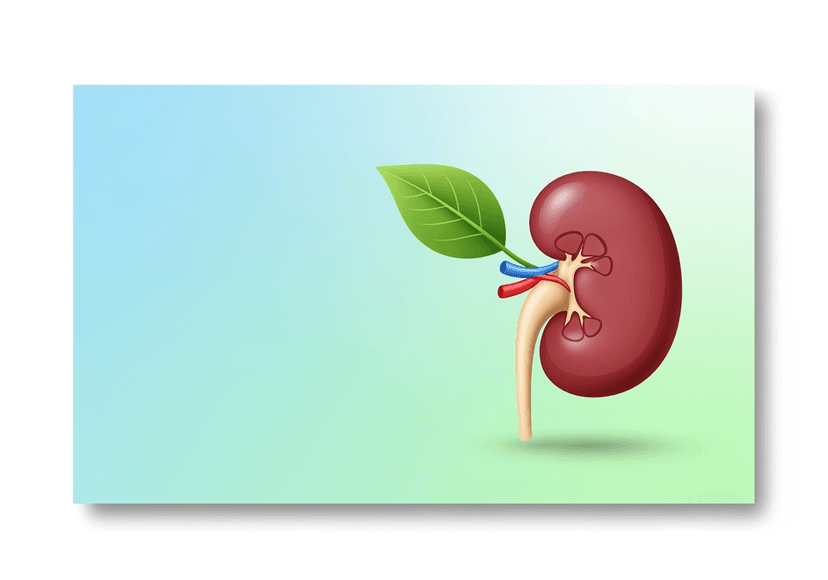
Best Doctors for Kidney Transplant in Top Healthtrip Hospitals
Detailed guide on kidney transplant, featuring doctors, hospitals, risks, recovery,
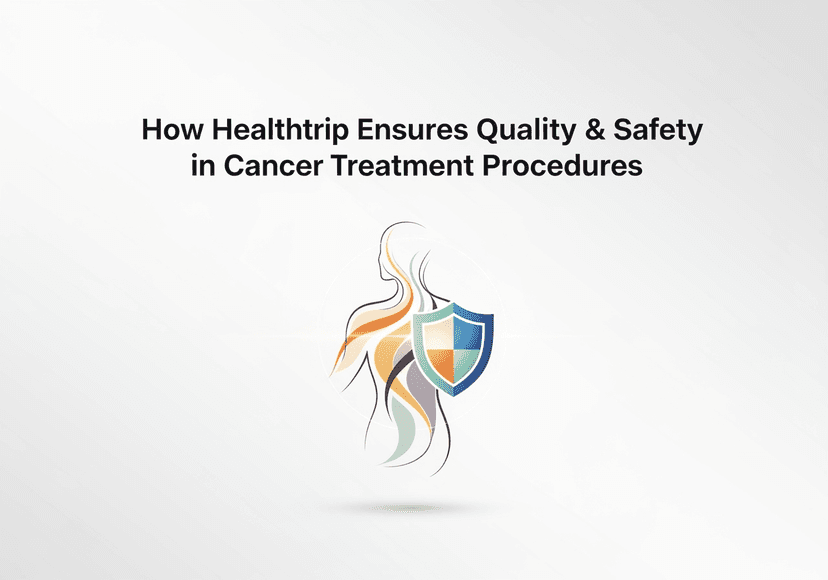
How Healthtrip Ensures Quality & Safety in Cancer Treatment Procedures
Detailed guide on cancer treatment, featuring doctors, hospitals, risks, recovery,

End-to-End Logistics for Cancer Treatment with Healthtrip's Support
Detailed guide on cancer treatment, featuring doctors, hospitals, risks, recovery,
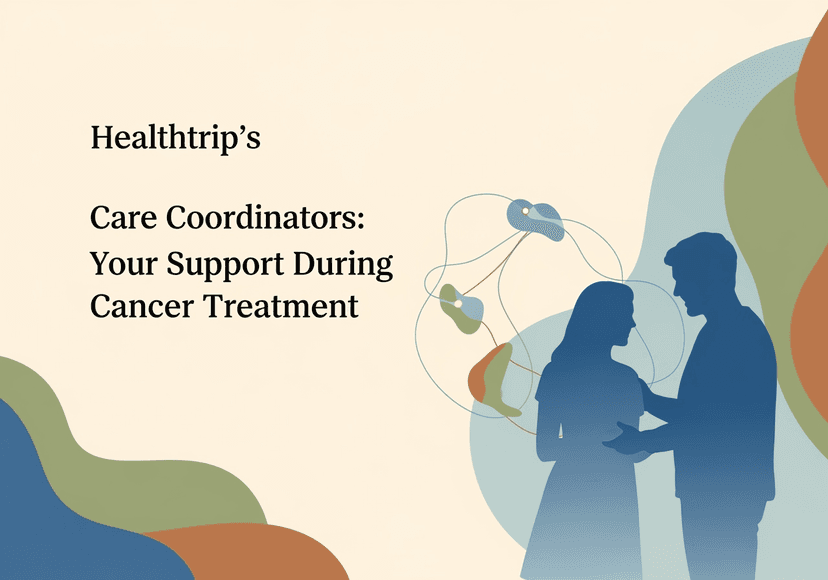
Healthtrip's Care Coordinators: Your Support During Cancer Treatment
Detailed guide on cancer treatment, featuring doctors, hospitals, risks, recovery,
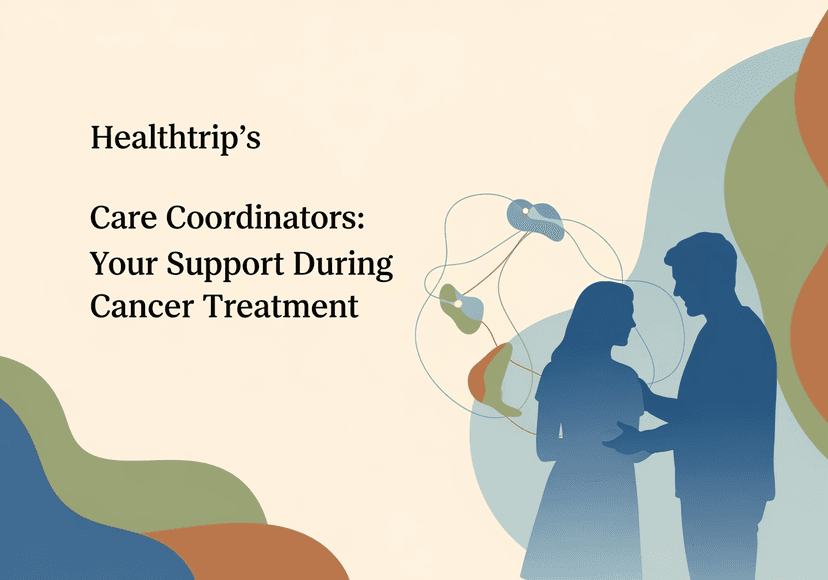
Healthtrip's Care Coordinators: Your Support During Cancer Treatment
Detailed guide on cancer treatment, featuring doctors, hospitals, risks, recovery,
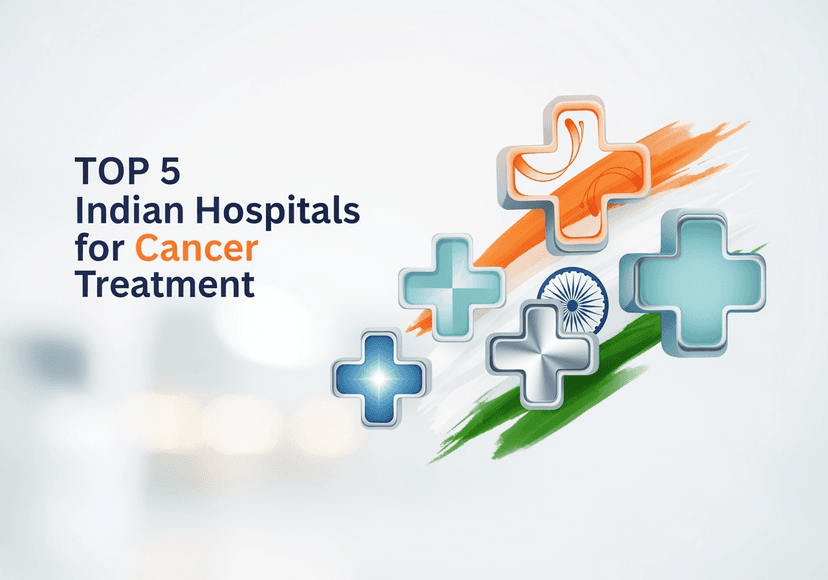
Top 5 Indian Hospitals for Cancer Treatment
Detailed guide on cancer treatment, featuring doctors, hospitals, risks, recovery,










